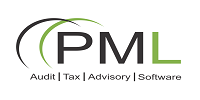Do Good Accountants Always Do Good Audit?
In 2002, the President of United States passed into law the Sarbanes-Oxley Act of 2002 addressing corporate accountability. A response to the financial scandals that undermined citizens’ confidence in U.S. business and perhaps most important, though, it puts the accounting industry under tightened federal oversight. It creates a regulatory board—with broad powers to punish corruption—to monitor accounting firms, and it establishes stiff criminal penalties, including long jail terms, for accounting fraud. In recent times, the Financial Reporting Council of Nigeria, circulated a memo barring Auditors of companies from preparing the company’s accounts and firms are also to comply with the code of cooperate governance.
Given the vast scale of recent accounting scandals and their devastating effects on workers and investors, it’s not surprising that the government and the public assume that the underlying problems are corruption and criminality—unethical accountants falsifying numbers to protect equally unethical clients. But that’s only a small part of the story. Serious accounting problems have long plagued corporate audits, routinely leading to substantial fines for accounting firms. Some of the errors, no doubt, are the result of fraud. But to attribute most errors to deliberate corruption would be to believe that the accounting profession is rife with crooks—a conclusion that anyone who has worked with accountants knows is untrue.
The deeper, more pernicious problem with corporate auditing, as it’s currently practiced, is its vulnerability to unconscious bias. Because of the often subjective nature of accounting and the tight relationships between accounting firms and their clients, even the most honest and meticulous of auditors can unintentionally distort the numbers in ways that mask a company’s true financial status, thereby misleading investors, regulators, and sometimes management.
The real problem isn’t conscious corruption but unconscious bias. If we are really going to restore trust in the system of auditing, we will need to go well beyond the provisions of the Acts and the code of corporate governance. We will need to embrace practices and regulations that recognize the existence of bias and moderate its ill effects. Only then can we be assured of the reliability of the financial reports issued by public companies and ratified by professional accountants.


